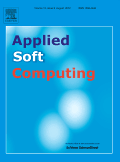
APPLIED SOFT COMPUTING
metrics 2024
Exploring interdisciplinary approaches in soft computing.
Introduction
Applied Soft Computing is a premier international journal published by Elsevier, dedicated to advancing the field of soft computing in various applications. With an ISSN of 1568-4946 and E-ISSN of 1872-9681, it has established itself as a leading resource with a commendable impact factor and significant importance in its field. As of 2023, it ranks in the Q1 category of Software in Scopus, boasting a rank of 25 out of 407 journals in Computer Science, Software, representing the 93rd percentile among peers. The journal's primary objective is to publish high-quality, innovative research articles that explore soft computing methodologies and their applications across diverse domains, fostering interdisciplinary collaboration and advancing technological solutions. Based in the Netherlands, at Radarweg 29, 1043 NX Amsterdam, it serves as a vital platform for researchers, professionals, and students eager to contribute to and stay informed about the latest developments in soft computing.
Metrics 2024
 1.84
1.84 7.20
7.20 7.00
7.00 190
190Metrics History
Rank 2024
Scopus
IF (Web Of Science)
JCI (Web Of Science)
Quartile History
Similar Journals
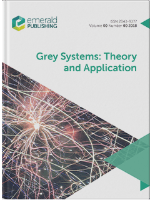
Grey Systems-Theory and Application
Advancing the Frontiers of Uncertainty in Complex SystemsGrey Systems - Theory and Application is a premier journal dedicated to advancing the field of grey systems theory, which plays a pivotal role in addressing uncertainties in complex systems across various domains. Published by Emerald Group Publishing Ltd in the United Kingdom, this journal has established itself as a respected platform for innovative research, boasting a commendable 2023 impact factor reflected in its Q2 categorization in applied mathematics, computer science, and control systems engineering. With Scopus rankings placing it in the top tiers of its fields, it provides a robust forum for researchers, professionals, and students to explore theoretical developments and practical applications. The journal, which has been converged from 2011 to 2024, encourages open conversations on the theoretical underpinnings and real-world implications of grey systems, making it an essential resource for those looking to deepen their understanding and contribute meaningfully to this dynamic area of study.
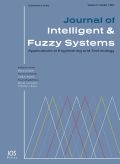
JOURNAL OF INTELLIGENT & FUZZY SYSTEMS
Elevating Knowledge in AI and Engineering DisciplinesJOURNAL OF INTELLIGENT & FUZZY SYSTEMS is a premier publication dedicated to advancing the field of artificial intelligence, fuzzy systems, and related engineering disciplines. Published by IOS PRESS, this journal plays a vital role in disseminating innovative research and methodologies that push the boundaries of knowledge from its inception in 1993 through 2024. With an impact factor underscoring its significance, it maintains a strong reputation for quality and rigor, achieving Q3 in Artificial Intelligence and Q2 in Engineering (miscellaneous) as reported in 2023. Researchers can access invaluable insights into current trends and applications, making it an essential resource for professionals and scholars alike. The journal welcomes contributions that bridge theoretical advancements and practical implementations, fostering a community of interdisciplinary collaboration. Situated in the heart of the Netherlands, the JOURNAL OF INTELLIGENT & FUZZY SYSTEMS is committed to enhancing understanding in the realms of mathematics, statistics, and probability, with Scopus rankings reflecting its competitive edge across various fields.
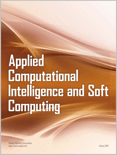
Applied Computational Intelligence and Soft Computing
Shaping the Future of AI and EngineeringApplied Computational Intelligence and Soft Computing, published by HINDAWI LTD, is a premier open access journal that has been disseminating critical research since 2009, focusing on the intersection of artificial intelligence and soft computing. With an impressive array of quartile rankings in 2023, including Q2 in Civil and Structural Engineering and Computational Mechanics, this journal has established itself as a significant contributor to the fields of computer science and engineering. Based in Egypt, it plays a vital role in advancing knowledge by providing researchers, professionals, and students with easy access to high-quality studies. The journal’s rigorous peer-review process ensures that only the most impactful research is highlighted, making it an essential resource for those looking to stay abreast of the latest innovations and methodological advancements in applied computational intelligence. Its Scopus rankings further affirm its influence and reputation within the academic community, exemplifying its commitment to facilitating collaboration and fostering intellectual discourse in various scientific domains.
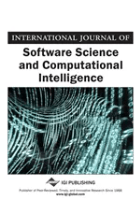
International Journal of Software Science and Computational Intelligence-IJSSCI
Driving Progress in Algorithm Development and Machine LearningInternational Journal of Software Science and Computational Intelligence (IJSSCI) is a prominent academic journal published by IGI Global, dedicated to advancing the fields of software science and computational intelligence. With its ISSN 1942-9045 and E-ISSN 1942-9037, IJSSCI offers a platform for researchers, practitioners, and students to disseminate innovative research findings, theoretical advancements, and practical applications in areas such as algorithm development, machine learning, and software engineering. Although the journal currently does not operate under an open access model, its rigorous peer-review process ensures high-quality publications that contribute significantly to the academic discourse. Based in Hershey, PA, IJSSCI is recognized for its commitment to fostering collaboration among professionals in the technology and computer science fields, making it an essential resource for those looking to stay at the forefront of software science advancements.

Fuzzy Information and Engineering
Unlocking Potential in Control Systems and Artificial IntelligenceFuzzy Information and Engineering is a prestigious open access journal recognized for its contributions to the interdisciplinary fields of applied mathematics, control systems engineering, artificial intelligence, and information systems, published by TSINGHUA UNIVERSITY PRESS. With an impact factor that reflects its increasing influence, the journal has maintained a strong position in the academic community since its inception in 2011, converging its focus between 2014 and 2024. The journal is indexed in notable databases such as Scopus, demonstrating solid rankings across its categories, including a commendable Q3 classification in applied mathematics and control systems engineering. By fostering innovative research and disseminating key findings, Fuzzy Information and Engineering serves as a vital platform for researchers, professionals, and students alike, promoting advancements in fuzzy systems and their applications within diverse domains. Notably, since transitioning to an open access model in 2015, the journal has enhanced accessibility for a global audience, encouraging collaborative efforts in academia and industry.

Journal of Applied Mathematics & Informatics
Transforming Ideas into Algorithms: Where Mathematics Meets Informatics.Journal of Applied Mathematics & Informatics is a peer-reviewed academic journal published by the Korean Society of Computational & Applied Mathematics (KSCAM), focusing on the integration and application of mathematical theories and computational techniques across various domains. Established in 2019, this journal serves as a platform for researchers, professionals, and students to share innovative methodologies, practical applications, and theoretical advancements in fields like analysis, applied mathematics, and computational theory. As a Q4 ranked journal according to the 2023 category quartiles in analysis, applied mathematics, computational mathematics, and miscellaneous mathematics, it provides a valuable, albeit niche, contribution to the academic landscape. While the journal currently operates without open access options, it aims to disseminate quality research to foster collaboration and knowledge exchange within the mathematics and computer science communities. Researchers looking to explore emerging trends and methodologies in applied mathematics and informatics will find an essential resource in this journal, which is based in Daejeon, South Korea.

Evolutionary Intelligence
Exploring the Synergy of Intelligence Across DisciplinesEvolutionary Intelligence is a prestigious journal published by Springer Heidelberg, dedicated to the interdisciplinary study of Artificial Intelligence, Cognitive Neuroscience, Computer Vision, and Mathematics. With its ISSN 1864-5909 and E-ISSN 1864-5917, the journal has established a significant presence in the academic community since its inception in 2008. Spanning a diverse range of topics relevant to both theoretical and empirical research, it has achieved impressive rankings, including Q3 in Artificial Intelligence and Cognitive Neuroscience, and Q2 in Computer Vision and Pattern Recognition as of 2023. With a strong Scopus ranking that places it in the top quartiles of its field, Evolutionary Intelligence serves as an essential platform for scholars and practitioners seeking to advance knowledge and foster innovation in these dynamic fields. Researchers, professionals, and students alike will find invaluable insights and cutting-edge findings that challenge existing paradigms and inspire future explorations in intelligence-related studies.

Journal of Advanced Computational Intelligence and Intelligent Informatics
Pioneering Research in AI and Human-Computer InteractionThe Journal of Advanced Computational Intelligence and Intelligent Informatics, published by FUJI TECHNOLOGY PRESS LTD, stands as a pivotal platform in the fields of Artificial Intelligence, Computer Vision, and Human-Computer Interaction. Established in 1997, this Open Access journal has been providing accessible insights into the latest advancements in computational intelligence and informatics since 2007. With its ISSN 1343-0130 and E-ISSN 1883-8014, this journal invites a diverse readership, including researchers, professionals, and students eager to explore innovative methodologies and applications. Despite its current Q4 ranking in the relevant categories, the journal remains committed to contributing valuable knowledge to the academic community and enhancing the global discourse in computational technologies. With its focus on fostering communication and collaboration among scholars, the journal plays an essential role in driving forward the understanding of intelligent systems and their applications in various domains.
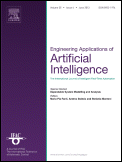
ENGINEERING APPLICATIONS OF ARTIFICIAL INTELLIGENCE
Shaping Tomorrow's Technology Through AI Applications in EngineeringENGINEERING APPLICATIONS OF ARTIFICIAL INTELLIGENCE, published by PERGAMON-ELSEVIER SCIENCE LTD, stands as a premier journal within the disciplines of Artificial Intelligence, Control and Systems Engineering, and Electrical and Electronic Engineering. With an impressive Q1 ranking across these categories in 2023 and a strong presence recognized by Scopus rankings, this journal provides a vital platform for disseminating cutting-edge research innovations and applications that harness the power of AI in engineering. Spanning over three decades of scholarly contributions from 1988 to 2024, the journal appeals to a diverse audience including researchers, industry professionals, and students eager to explore the transformative impacts of artificial intelligence on engineering practices. While not an open-access journal, it ensures that significant advancements in the field remain accessible through library subscriptions. By fostering scholarly dialogue and advancing knowledge in engineering applications of AI, this journal plays an integral role in shaping the future of technology and innovation.

Mathematical Foundations of Computing
Innovating the Future through Mathematical FoundationsMathematical Foundations of Computing, published by the American Institute of Mathematical Sciences (AIMS), is a distinguished open-access journal that has been actively disseminating influential research in the fields of Artificial Intelligence, Computational Mathematics, Computational Theory and Mathematics, and Theoretical Computer Science since its inception in 2009. With its E-ISSN 2577-8838, this journal is committed to providing researchers and practitioners with cutting-edge mathematical theories and methodologies that underpin modern computational practices, which is critical for advancing the field. The journal proudly holds a Q3 categorization in several relevant domains as of 2023, reflecting its contribution and accessibility amid an evolving academic landscape. By offering open access to its content, it ensures that vital research is freely available to a global audience, enhancing collaboration and innovation. Positioned in the heart of the United States, Mathematical Foundations of Computing serves as a crucial resource for advancing knowledge and fostering discussions among researchers, professionals, and students passionate about the mathematical underpinnings of computing.